 Malaysia as an International Halal Food Hub
Malaysia as an International Halal Food Hub
by Syarif Hidayat*
What is Halal? Halal is an Arabic word referring to what is permissible under Islamic law. In most cases, halal is used to refer to food that is deemed permissible to consume for Muslims. To be deemed halal, the ingredients and method of production must be thoroughly checked to ensure they adhere to Islamic dietary laws.
Muslims are allowed to consume what is Halalan Thoyyiban (“halal” and “good” food and drink.) (In the name of Allah, the Beneficent, the Merciful. Al Qur’an, Surah Al-Baqara, Verse:168 “ O mankind! Eat of that which is lawful and good on the earth, and follow not the footsteps of Shaitân (Satan). Verily, he is to you an open enemy.”.) The food that is, what is pure, clean, wholesome, nourishing, and pleasing to the taste. In general, everything is allowed (halal) except what has been specifically forbidden.
Also Read: Nuclear Technology: Harm and Benefit from the Qur’anic Perspective
“They ask thee what is lawful to them (as food): say: Lawful unto you are (all) things good and pure: and what ye have taught your trained hunting animals (to catch) in the manner directed to you by Allah; eat what they catch for you, but pronounce the name of Allah over it: and fear Allah; for Allah is swift in taking account.” (Al Qur’an, Surah Al-Maeda, Verse 4)
Eating is a matter of faith in Islam. Muslim dietary practise is fundamentally about obeying God Almighty Allah.
All practising Muslim believers obey God Almighty by eating the allowed foods (halal) and avoiding the forbidden foods (haram) which are mentioned in the Qur’an and in the sayings of the final Prophet Muhammad (Peace Be Upon Him).
International Halal Hub
Also Read: Gaza Cries Out, the World Stays Silent: A Wounded Humanity
Why Malaysia? Malaysia has aspirations to become a global hub for the production and trade of Halal products and services, as outlined in the 2006 Third Industrial Master Plan (IMP3), according to the official website of Malaysian Halal Industry Development Corporation (HDC): www.hdcglobal.com And as a modern Islamic country at the forefront of economic development, Malaysia has unparalleled potential.
With a progressive living and operating environment boasting political stability and consistent economic growth, Malaysia is fast becoming a business hub of choice for all industries. Further, Malaysia has unique advantages in developing and promoting the Halal products and services industry for many reasons:
Free Market
Malaysia is a progressive Islamic country. It is business-friendly to Muslims and non-Muslims alike, making it a Halal industry advantage. As an economically thriving nation, the Malaysian economy registered a gross domestic product (GDP) growth rate of 4.6 per cent for 2008, fueled by domestic demand and continued expansion in private and public consumption.
Also Read: Indo Defence Expo and Forum; Sharing Responsibility of Humankind and Environment
In 2008, its total trade grew 6.8 per cent from RM1.11 trillion to RM1.19 trillion. Its exports increased by 9.6 per cent to RM663.51 billion, while imports escalated 3.3 per cent to RM521.5 billion, resulting in a trade surplus for the eleventh consecutive year valued at RM142.01 billion. Furthermore, the economy is expected to record positive growth rate in 2009.
Malaysia has today become an export-driven economy spurred on by high technology, knowledge-based and capital-intensive industries. From January to September 2008, the services sector recorded the highest growth at 7.9%.
Racking up its global competitiveness, Malaysia has moved up the value chain to a high-technology, knowledge-based and capital-intensive powerhouse, incorporating design as well as research and development activities. Therefore, From Halal product traceability to Islamic Finance facilities, Malaysia is able to provide end-to-end Halal services.
Furthermore, Malaysia strategically located country within Asia Pacific, providing easy in-roads emerging markets in Asia and a total population larger than 500 million.
Also Read: Safiya Saeed: From Somali Migrant to First Hijab-Wearing Mayor of Sheffield
And Halal business owners will enjoy easier trade and market access to member countries of the Organisation of Islamic Countries (OIC), judging by the fact that its Chairman is a Malaysian representative.
Government and People Talent Support
Moreover, Malaysia has a pro-business government, offering tax and other investor incentives. In a bid to create a conducive operating environment, the government has introduced policies and an efficient institutional infrastructure to develop industry – Halal or otherwise.
An industry without talent, is simply said, asset-poor. The Malaysian talent pool is rich with young, educated and productive workers with skills necessary for science- and service-based industries.
Also Read: Why Food Safety is Essential During Hajj Services?
With Malaysia being a multi-racial and multi-lingual country made up of predominantly Malays, Indians and Chinese, Halal business owners will find no shortage of bilingual talent skilled to enrich trade relations in countries such as China.
Infrastructure
The topography of Malaysia’s economic landscape is made up of a network of well-maintained highways and railways that links to efficient seaports and world-class international airports.
With Malaysia’s commitment to industrial development and free trade, the government has established five economic growth corridors, in addition to over 200 industrial estates or parks and 13 free industrial zones. And as part of HDC’s initiatives, Malaysia is also home to one of the world’s first Halal Parks.
Also Read: Indonesia Sign Language Mushaf Qur’an; A Sustainable Gift in Celebrating Pancasila Birthday
What and Why HDC?
Halal Industry Development Corporation (HDC) is a developmental body that is unique in its own right. The Malaysian government established HDC in September 2006 because it realised the potential of the halal business. It also understood the country’s unique position and strengths would enable HDC to spearhead the overall development of the halal industry. HDC is the only Malaysian government- mandated company in the world tasked with coordinating and developing the national halal industry.
As a brand, HDC is business friendly, driven to make things happen, steered by experts delivering world-class know-how and collaborative by working towards a win-win situation. HDC’s promise is to help businesses access new markets both locally and globally.
For businesses, it means halal is the avenue for new markets with the help of HDC and its agencies. For consumers, it means that with the growth of the halal industry, they will have increased awareness and better choices on halal goods. And finally, for the government, with new markets reached through halal, it translates into economic growth.
Also Read: Leila Khaled, The Icon of Palestinian Women’s Resistance
The halal industry encompasses many sectors cutting across the entire halal value chain. HDC thus has multiple roles to play in the entire chain.
These include managing the stakeholders’ interest by:
-Creating business opportunities
HDC is the central implementation agency for key industry development initiatives and working with authorities and businesses. It promotes industries relating to halal, liaising with and assisting businesses and investors. It also manages and distributes government funding for the halal industry.
Also Read: The Twilight of the Zionist Israeli State
-Coordinating national initiatives
HDC is the referral agency for businesses and agencies involved in the Halal industry while understanding their specific roles and needs. It is also coordinator and chair for halal-related agency activities and organises discussion sessions.
-Communicating value to consumers
HDC provides support to businesses by providing branding and promotion of halal products and industries. It also provides training and consultancy services to support halal certification.
Also Read: Prof. Abdul Fatah El-Awaisi and the Intellectual Roadmap for the Liberation of Al-Quds
 HDC also focuses on the following elements of the halal value chain:
HDC also focuses on the following elements of the halal value chain:
1.Feed and Farm management
2.Ingredients
3.Manufacturing/Processing
Also Read: Dr. Joserizal Jurnalis: Founder of MER-C and Indonesia’s Humanitarian Icon on the Global Stage
4.Logistic Services
5.Research & Development and Innovation
6.Islamic Finance
7.Advertising & Promotions
In order to be more effective in developing the halal industry, HDC is focusing on core clusters that will add significantly to the economy. These clusters include specialty processed food, ingredients, livestock, pharmaceuticals and personal care. Development of these areas is key to realising a more holistic halal ecosystem. In order to realise this goal, HDC works hand in hand with all the relevant government ministries and agencies.
On the international front, it is the first point of contact and a key reference centre as well as providing stewardship and direction through the extremely varied array of sectors in the halal industry. This includes the processed food, beverage and livestock sectors to the pharmaceutical, cosmetics and personal care sectors and also the Islamic banking and logistics sectors.
An important factor is the role HDC plays in capacity development as the halal industry heads onward into the 21st century and the challenges that lie in store for it.
This includes strengthening and streamlining compliance, marketing, communication and response time in all sectors. To constantly embrace change for sustained growth is the methodology HDC consciously employs.
At home, HDC has been mandated by the Malaysian government to assist, in particular, the small and medium-sizes enterprises (SMEs). HDC works hand in hand with all the relevant government ministries and its agencies, especially the Ministry of International Trade and Industries (MITI), for leverage and achieving desired results.
The help to SMEs are mainly in the form of tax incentives, funding, licensing, skills upgrading plus marketing and promotional expertise. To sum it up, when it comes to everything halal, HDC plays the leading role in shaping and guiding its ascendency both at home and abroad.
 Malaysia to standardize halal standards
Malaysia to standardize halal standards
A Malaysia-based group is drafting halal standards to give Muslim countries a framework to regulate a $2 trillion global industry ranging from food to finance. The global halal industry is regarded as a vast but difficult market with the substantial Muslim population outweighed by the use of disparate sharia standards, differing levels of development across Muslim countries and a lack of regulatory infrastructure.
The International Halal Integrity Alliance is working on guidelines relating to the use of sharia-compliant pharmaceuticals, finance and processed food which would be completed by year-end, its chief executive officer Darhim Hashim said. “We, as Muslims, are not in control of the supply chain,” he said on the sidelines of a halal forum.
“We cannot say that we can accept everything that comes into the country is halal so at the very basic level is some kind of import regulation. That in return leads to a standard.”
Darhim said the alliance has published seven other standards which include the regulation of sharia-compliant restaurants, cosmetics, lab testing and animal slaughtering which have been ratified by the Islamic Chamber of Commerce and Industry, a grouping of 56 Islamic countries.
The alliance’s members include certification bodies from Europe, India, the Phillipines, Cambodia and Australia.
The halal industry has been overshadowed by the Islamic finance sector in recent years as the petrodollar boom sparked a rush for sharia-compliant assets. But the large global Muslim population is seen as offering growth opportunities for the industry. (T/E01/IR)
Mi’raj Islamic News Agency (MINA)
 *Senior Editor of MINA (He can be reached via emails: [email protected] and [email protected])
*Senior Editor of MINA (He can be reached via emails: [email protected] and [email protected])
Bibliotheque:
2. http://www.hdcglobal.com






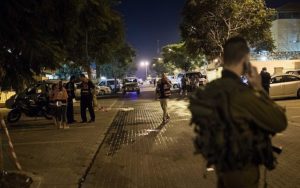
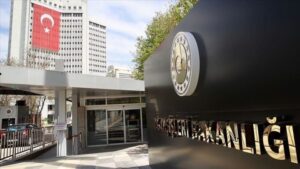
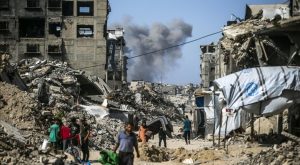
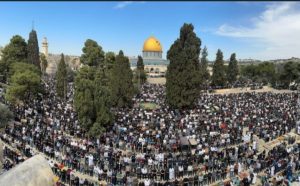
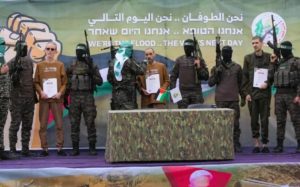
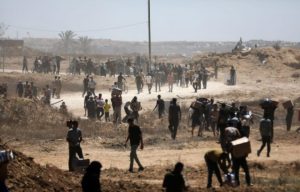
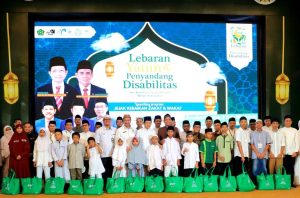




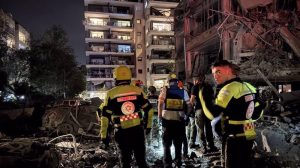
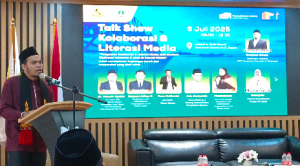
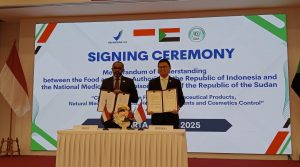


![MUI Chairman for Foreign Relations and International Cooperation, Sudarnoto Abdul Hakim (center) at the One Million Women for Gaza Press Conference entitled "Women Boycott Pro-Israel Products" held at the Swiss-Belinn Cawang Hotel, East Jakarta, Thursday (3/7/2025). [Photo: Arina/MINA]](https://en.minanews.net/wp-content/uploads/2025/07/20250703_144042-scaled-1-300x225.jpg)




 Mina Indonesia
Mina Indonesia Mina Arabic
Mina Arabic